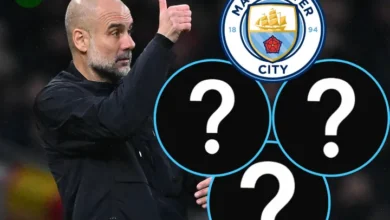Liverpool’s Hong Kong Defeat: Comprehensive Analysis and Key Takeaways

Liverpool’s pre-season tour reached a pivotal moment at the Kai Tak Stadium in Hong Kong, where the Reds faced a challenging test that would reveal both promising developments and concerning weaknesses under new management. The 4-2 defeat, while disappointing in terms of the scoreline, provided invaluable insights into Arne Slot’s evolving tactical approach and the current state of his squad as they prepare for the upcoming season.
The match at Kai Tak Stadium was more than just another pre-season friendly; it was a litmus test for Liverpool’s adaptation to their new manager’s philosophy and a chance to evaluate both established players and emerging talents in a competitive environment. The humid Hong Kong conditions and enthusiastic local support created an atmosphere that closely resembled the intensity of competitive fixtures, making the lessons learned all the more valuable.
The most striking aspect of Liverpool’s performance was the visible shift in tactical approach under Slot’s guidance. Unlike the high-intensity, gegenpressing style that defined the Klopp era, Slot’s Liverpool showed a more measured, possession-based approach that emphasized control and patience. This philosophical change was evident from the opening minutes, with the team demonstrating a willingness to circulate the ball methodically rather than rushing forward at every opportunity.
The Dutch manager’s influence was particularly noticeable in the team’s defensive shape and pressing triggers. Rather than the immediate, aggressive pressing that characterized Liverpool under Klopp, Slot’s side showed more selective pressing, choosing their moments to engage the opposition more carefully. This approach required greater discipline and understanding from the players, and while there were promising signs of adaptation, the defeat highlighted that this transition is still a work in progress.
Liverpool’s build-up play also showed clear signs of Slot’s influence. The team demonstrated patience in possession, with center-backs encouraged to step forward with the ball and midfielders dropping deeper to create passing options. This style, reminiscent of Slot’s successful approach at Feyenoord, aims to create overloads in different areas of the pitch and ultimately generate clearer scoring opportunities through sustained pressure rather than quick transitions.
One of the most encouraging aspects of the Hong Kong encounter was the debut performance of Florian Wirtz, who demonstrated exactly why Liverpool moved decisively to secure his services during the summer transfer window. The German international’s first start in a Liverpool shirt showcased the technical ability, vision, and maturity that have made him one of Europe’s most sought-after young talents.
Wirtz’s positioning throughout the match was exemplary, consistently finding pockets of space between the lines where he could receive the ball and influence play. His first touch was consistently excellent, allowing him to turn quickly and drive forward with purpose. Perhaps most impressively, he showed an immediate understanding of Liverpool’s attacking patterns, linking effectively with both the forward line and advancing full-backs.
The 21-year-old’s creativity was evident in several key moments throughout the match. His ability to thread passes through tight spaces created several promising attacking opportunities, while his willingness to take on defenders in one-on-one situations added a new dimension to Liverpool’s offensive play. Even in defeat, Wirtz’s performance suggested that he could quickly become a crucial component of Slot’s tactical system.
What stood out most about Wirtz’s debut was his composure under pressure. Despite the intensity of the occasion and the challenging conditions, he never appeared rushed or overwhelmed. His decision-making was consistently sound, choosing when to play simple passes to maintain possession and when to attempt more ambitious through balls. This maturity bodes well for his integration into the Premier League, where such composure under pressure is essential.
Among the most compelling narratives emerging from the Hong Kong defeat was the performance of Liverpool’s teenage talent, whose display suggested readiness for senior football that belied his years. The young player’s confidence on the ball and tactical awareness demonstrated the quality of Liverpool’s youth development system and offered genuine hope for the future.
Throughout the match, the teenager showed remarkable composure in possession, never appearing overawed by the occasion or the quality of opposition. His passing was crisp and purposeful, consistently finding teammates in good positions and helping to maintain Liverpool’s rhythm in possession. Perhaps most encouragingly, he showed excellent game intelligence, understanding when to keep things simple and when to attempt more ambitious plays.
The young player’s physical development was also noteworthy. Despite his age, he competed effectively in physical duels and showed the pace necessary to contribute in both defensive and attacking phases. His work rate was exemplary, tracking back diligently when Liverpool lost possession and making intelligent runs forward when opportunities arose.
This performance will undoubtedly have caught Slot’s attention and could lead to increased opportunities in upcoming pre-season fixtures. The teenager’s readiness for senior football appears genuine rather than superficial, suggesting that he could become a valuable squad option sooner than initially anticipated. Such emergence of young talent is crucial for Liverpool’s long-term planning and provides optimism for the club’s future.
While there were positive individual performances to celebrate, the 4-2 scoreline highlighted defensive vulnerabilities that Arne Slot must address before the competitive season begins. The central defensive partnership, in particular, showed concerning signs of uncertainty and miscommunication that contributed directly to several of the goals conceded.
The first major issue was the lack of organization in Liverpool’s defensive line. Too often, the center-backs were caught out of position, either stepping up too aggressively and leaving space in behind or dropping too deep and allowing the opposition to build pressure in dangerous areas. This disorganization was particularly evident during set-piece situations, where Liverpool’s marking was loose and communication appeared poor.
Individual defensive errors also played a significant role in the defeat. Poor decision-making in crucial moments, including mistimed tackles and wayward passes in dangerous areas, gifted the opposition scoring opportunities that they gratefully accepted. These mistakes suggested that some players are still adjusting to the demands of Slot’s defensive system, which requires different positioning and responsibilities compared to what they experienced under previous management.
The full-back positions also presented challenges, with both flanks occasionally exposed to quick counter-attacks. While Liverpool’s attacking full-backs have long been a key feature of the team’s success, the balance between attacking contribution and defensive solidity appeared less refined under the new system. This imbalance created spaces that the opposition exploited effectively, leading to several dangerous situations.
Perhaps most concerning was the apparent lack of leadership and communication within the defensive unit. The vocal organization that had been a hallmark of Liverpool’s defensive success in recent years seemed diminished, with players appearing uncertain about their responsibilities in various game situations. This communication breakdown was particularly evident during the opposition’s attacking moves, where Liverpool’s defensive response often appeared reactive rather than proactive.
The midfield battle in Hong Kong revealed both the potential and the current limitations of Liverpool’s revamped central area. The integration of new signings alongside established players showed promise in possession but highlighted ongoing concerns about defensive balance and work rate without the ball.
Liverpool’s midfield demonstrated excellent technical ability throughout the match, with players showing comfort in tight spaces and the ability to maintain possession under pressure. The passing combinations between the central players created several promising attacking opportunities, and there were encouraging signs of understanding developing between players who had limited time to work together.
However, the defensive side of the midfield’s game presented more significant concerns. The transition from attack to defense often appeared sluggish, with midfielders slow to track back and support the defensive line. This lack of immediate defensive reaction allowed the opposition to exploit spaces in dangerous areas and contributed to several of the goals conceded
The work rate and pressing intensity that had been hallmarks of Liverpool’s midfield success under Klopp appeared diminished, though this may be a deliberate tactical choice under Slot’s more measured approach. However, finding the right balance between controlled possession play and the necessary defensive effort will be crucial for Liverpool’s success in competitive fixtures.
Despite the disappointing result, Liverpool’s attacking play showed several encouraging signs that suggest the team’s creative potential under Slot’s management. The front line demonstrated improved movement and positioning, creating numerous scoring opportunities throughout the match even if the final execution was sometimes lacking.
The interplay between Liverpool’s attacking players was particularly impressive, with quick passing combinations and intelligent off-the-ball movement creating space and confusion in the opposition defense. The width provided by the full-backs added an extra dimension to the attack, stretching the opposition and creating overloads in wide areas that led to several promising crossing opportunities.
However, the clinical finishing that had been a strength of Liverpool’s attack in previous seasons appeared less sharp. Several clear scoring opportunities were spurned through poor decision-making or execution in the final third. While this could be attributed to match fitness and the adjustment to new tactical patterns, improving conversion rates will be essential for competitive success.
The creativity from midfield positions was another positive aspect of Liverpool’s attacking play. The willingness of central players to make forward runs and contribute to attacking moves added unpredictability to Liverpool’s approach, though again, the final ball or finish often let the team down at crucial moments.
It’s crucial to view the Hong Kong defeat within the proper context of pre-season preparation. These matches serve multiple purposes beyond simply winning games: they provide opportunities to experiment with tactics, assess player fitness, integrate new signings, and give experience to younger squad members.
From this perspective, the defeat offered valuable learning opportunities that could prove beneficial in the long term. The exposure of defensive weaknesses allows the coaching staff to address these issues in training before competitive fixtures begin. Similarly, the positive individual performances provide confidence and momentum for players who will be crucial to Liverpool’s success this season.
The physical demands of playing in Hong Kong’s challenging climate also provided excellent conditioning for the players, testing their fitness levels and adaptation to difficult conditions. Such experiences can be invaluable when facing similar challenges during the competitive season, whether in hot climates or during periods of fixture congestion
The enthusiasm of Liverpool supporters in Hong Kong demonstrated the global appeal of the club and the importance of international tours in building and maintaining the fan base. Despite the disappointing result, the local support remained vocal and passionate throughout the match, creating an atmosphere that enhanced the experience for both players and traveling supporters. The positive reception from Hong Kong fans also highlighted the value of these international fixtures in expanding Liverpool’s global reach and commercial opportunities. The club’s commitment to bringing high-quality football to different markets around the world helps maintain its position as one of the most popular and commercially successful clubs globally
The Hong Kong defeat, while disappointing in isolation, provides a valuable foundation for Liverpool’s continued development under Arne Slot. The clear identification of areas requiring improvement allows the coaching staff to focus their attention on specific aspects of the team’s performance in remaining pre-season fixtures.
The positive individual performances, particularly from new signings and young players, offer genuine optimism for the season ahead. The integration of these players into the existing squad structure appears to be progressing well, though continued work will be necessary to maximize their collective potential.
Most importantly, the match demonstrated that Liverpool’s transition under new management is progressing, albeit with the expected challenges and setbacks. The commitment to a new tactical approach requires patience and persistence, but the early signs suggest that this evolution could ultimately benefit the club’s long-term prospects.
Liverpool’s 4-2 defeat in Hong Kong represented far more than a simple pre-season setback. It provided crucial insights into the team’s development under Arne Slot, highlighted both encouraging progress and areas requiring urgent attention, and demonstrated the ongoing nature of the club’s tactical evolution.
The encouraging debut from Florian Wirtz, the readiness of teenage talent for senior football, and the signs of tactical progress under Slot’s guidance all provide reasons for optimism. However, the defensive concerns and the need for improved clinical finishing cannot be ignored as Liverpool prepares for the competitive challenges ahead.
As the pre-season tour continues, the lessons learned in Hong Kong will undoubtedly influence Liverpool’s preparation and development. The defeat, while disappointing, may ultimately prove beneficial if it provides the motivation and clarity needed to address weaknesses before the season begins in earnest. The true measure of this match’s value will be seen in how Liverpool responds to these challenges in the crucial weeks ahead.















